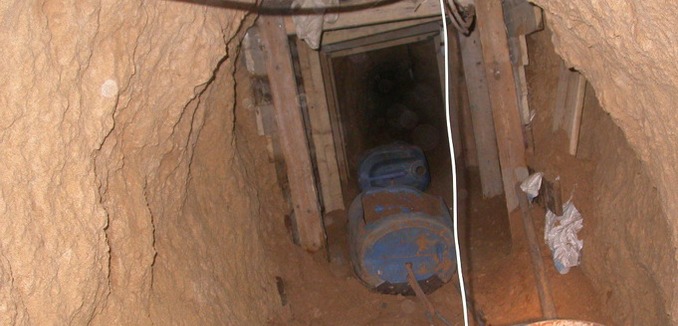Reports that Hamas is somewhere between frustrated and angry with Egypt’s Muslim Brotherhood-linked government – which trickled out of Arabic-language media and were picked up by English-language Western and MidEast outlets – are gaining traction:
Hamas condemned Egypt’s decision to flood smuggling tunnels linking Sinai and Gaza, according to a statement Thursday. “The movement reviewed the issue of the destruction of tunnels with Egyptian officials and hopes that officials in Egypt understand the situation in Gaza and the need for these tunnels,” Hamas leader Salah al-Bardaweel said. Closing tunnels without providing an alternative method for Gazans to get necessary supplies hurts Palestinian families, said Bardaweel, who expressed his hope that Egypt would cease such activities.
There were broad expectations that the ascension of the Muslim Brotherhood in Egypt would see the forging of an alliance between the country and the Iran-backed Hamas. The Hamas Charter identifies the group as a wing of the Muslim Brotherhood. Analysts have identified ideological and theological ties between the groups. Muslim Brotherhood leaders have declared that Hamas is a role model, and Hamas leaders have in turn effusively praised the Muslim Brotherhood’s leaders.
Instead recent weeks have seen not just the flooding of Hamas’s smuggling tunnels, but also the rejection of Hamas’s request to open an office in Cairo. That rejection was driven by security forces, and is comes at a time of heightened tensions between the Mohammed Morsi government and Egyptian security forces:
Egypt’s powerful military is showing signs of growing impatience with the country’s Islamist leaders, indirectly criticizing their policies and issuing thinly veiled threats that it might seize power again. The tension is raising the specter of another military intervention much like the one in 2011, when generals replaced longtime authoritarian leader Hosni Mubarak after they sided with anti-regime protesters in their 18-day popular uprising.
The tunnel flooding can be explained as function of Egyptian commitments made as part of the Cairo-brokered ceasefire that brought an end to Israel’s Operation Pillar of Defense in November. The campaign, which came after weeks of escalatory rocket fire by Hamas, saw Israel substantially degrade the group’s command and control infrastructure, as well as the its arsenal of Iranian-provided advanced weapons. The losses, coupled with Hamas’s near-total inability to penetrate Israel’s Iron Dome missile shield, left the Palestinian organization struggling to restore its shattered morale. Egypt mediated a ceasefire that incorporated Israeli demands regarding efforts to cease weapons fire – which Hamas rushed to enforce – and to limit weapons smuggling. An Egyptian delegation recently traveled to Israel to discuss implementation of the ceasefire terms.
But Egypt’s ceasefire commitments have little to do with broader efforts to block Hamas’s diplomatic penetration into the country.
Army officials have been increasingly vocal about the need to address Sinai Peninsula terrorism, even as Hamas late last year freed Al Qaeda-linked jihadists and weapons smuggling between the Sinai and the Hamas-controlled Gaza Strip remains rampant. Last August armed men attacked a military base, killing 16 Egyptian soldiers. Terrorists subsequently launched a series of attacks along the Israeli border. Other plots were intercepted. There have been jihadi-driven kidnapping plots against Egyptian officers. Gazan terrorists may even have tested rockets in the Sinai last year.
Ideologically affinity between the Muslim Brotherhood and Hamas aside, the Egyptian military can’t allow attacks against its forces to continue with impunity.
[Photo: Israel Defense Forces / Flickr]




